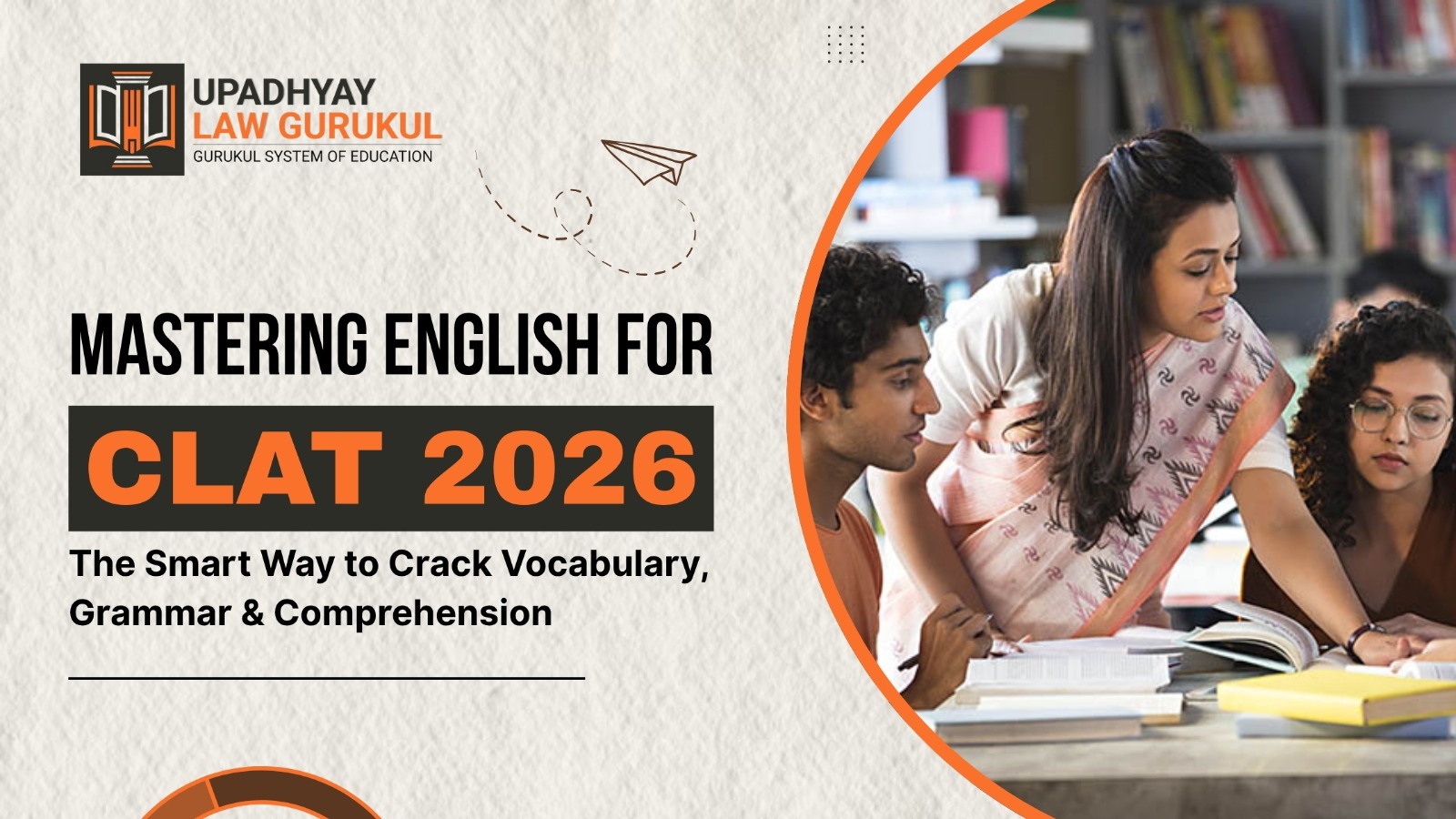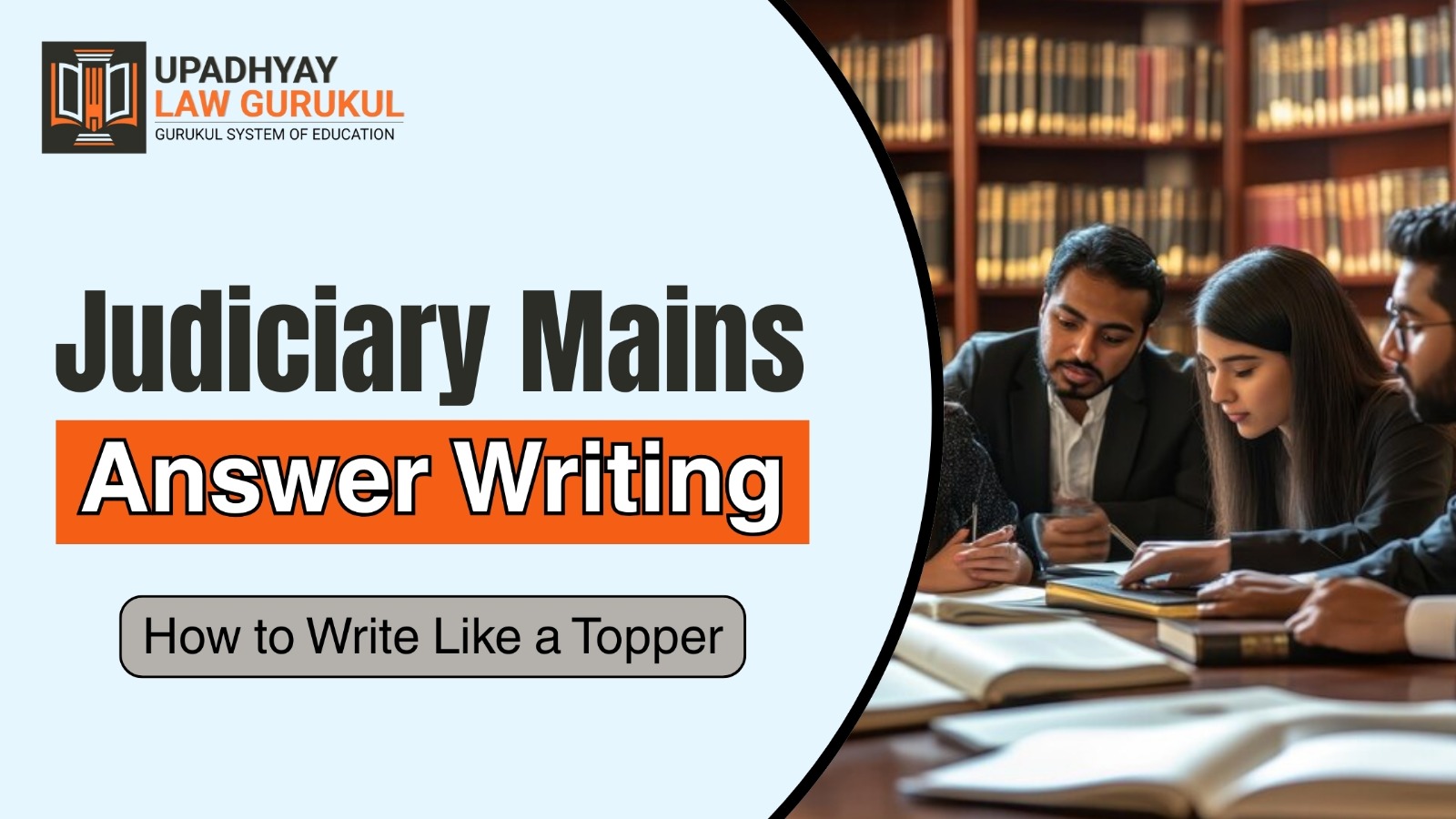If you are dreaming of joining the National Law Universities through CLAT 2026, let’s get one thing clear — English is not just a subject, it’s your gateway to understanding the entire paper.
Most students fear English — and it’s not their fault. Weak schooling, no habit of reading, and too much reliance on coaching makes it seem like a tough nut to crack. But what if I told you that you can master English for CLAT without feeling overwhelmed?
Let’s dive into a step-by-step strategy that actually works. No fluff. Only what matters.
Why English Matters in CLAT
In CLAT, English Language section carries 22–26 questions, but its impact is much deeper. It builds your reading speed, enhances comprehension, and improves your score in Legal Reasoning and Current Affairs too.
So, when you prepare for English, you’re indirectly preparing for 70% of the paper.
CLAT English Syllabus at a Glance
- Reading Comprehension (based on editorial-style passages)
- Vocabulary (Synonyms, Antonyms, Contextual Meaning)
- Grammar (Basic error spotting, sentence correction)
- Inference-based questions
7 Smart Tips to Prepare English for CLAT 2026
Start Reading The Hindu or Indian Express — Every Day
Read the editorial page regularly. Don’t read everything. Just pick one opinion piece per day and:
- Underline new words
- Note the tone (informal/formal/analytical)
- Try summarizing in your own words
Bonus Tip: Read aloud to improve fluency.
Build a Powerful Vocabulary — The Easy Way
Forget rote memorization. Instead, try this:
- Use an app like Vocabulary.com or Magoosh Vocabulary Builder
- Learn 5 new words a day, with meaning, usage, synonym & antonym
- Revise weekly. Test yourself every Sunday.
Focus on: Legal terms, political words, abstract nouns, phrasal verbs
Practice Reading Comprehension the Right Way
Don’t just read the passage and solve questions. Instead:
- Read the first and last line of each paragraph first — this gives you the structure
- Identify the tone (critical, sarcastic, factual, optimistic, etc.)
- Use POE (Process of Elimination) for MCQs — remove obviously wrong options
Master Grammar Without the Jargon
Don’t waste time on deep grammar theory.
Just focus on:
- Subject-verb agreement
- Tenses
- Prepositions
- Modifiers
- Articles and conjunctions
Use books like Wren & Martin (concise) or SP Bakshi (Arihant)
Think in English, Not Translate in Mind
This is underrated but powerful.
Start by:
- Writing your daily journal in English
- Speaking to yourself (yes, it works!)
- Watching English YouTube news channels (WION, BBC, DW) with subtitles
Take Mock Tests in Timed Conditions
Your real improvement comes when you:
- Take sectional tests for English (25 mins max)
- Track accuracy and time
- Analyze what types of questions are your weak spots — grammar, inference, or tone
Focus on Context, Not Just Word Meaning
CLAT tests you not just on meaning, but how a word is used in a sentence. For example:
- "The minister’s remarks were inflammatory."
Can you infer whether it’s negative? Yes — and that’s the skill you need.
So, practice contextual meaning regularly.
Suggested Resources for CLAT English
| Resource Type | Recommendation |
|---|---|
| Newspaper | The Hindu / Indian Express (Editorial) |
| Book | Word Power Made Easy (Norman Lewis) |
| Practice Questions | CLAT Past Year Papers, Mock Platforms |
| App | Magoosh Vocabulary Builder, Vocab24 |
Final Thoughts
Don’t chase shortcuts. English takes consistency, not coaching. If you give just 30–45 minutes daily for the next 6 months, you’ll be in the top percentile — not just in English, but overall CLAT score.
You don’t need to speak like Shashi Tharoor.
You just need to understand fast, think sharp, and answer smart.


.jpg)


Leave a Comment